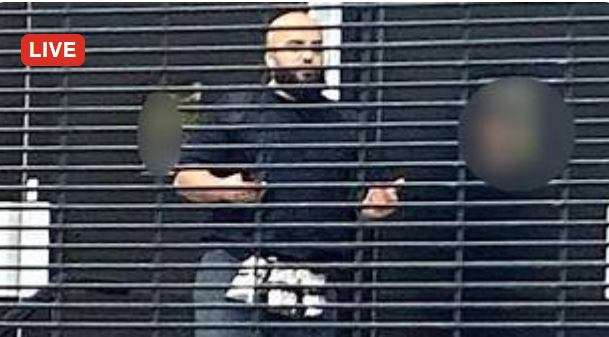Why Her Tears Crashed Markets
- presenterscarlettred

- Jul 3, 2025
- 4 min read
Analysis by Scarlett Red
The pound fell almost 1% in minutes. British borrowing costs spiked to levels not seen since October 2022.
The cause? Rachel Reeves crying in Parliament.
We live in a world where human emotion has become a market commodity. Where a Chancellor's tears trigger economic turbulence faster than policy announcements.
Something is deeply wrong with this picture.
The Impossible Standard
We've created an impossible standard for politicians. They must be simultaneously compassionate and stoic, human and superhuman, accessible and untouchable.
When Reeves announced cuts to Personal Independence Payments affecting over 800,000 vulnerable people, the public criticised her for lacking empathy. Cold. Heartless. Disconnected from real suffering.
Then she showed emotion. The same public that demanded compassion immediately dismissed her tears as "crocodile tears" and manipulation.
The brutal irony is inescapable. We criticise politicians for lacking empathy, then show zero empathy when they display vulnerability.
It's quite crazy that someone in government isn't allowed to show they are essentially human. The public seems to think they have a right to know everything about someone, to dissect every emotional moment for political meaning.
The Gender Trap
But here's where it gets more sinister. If a male Chancellor had broken down in Parliament, we'd likely frame it differently.
Male tears become a brave vulnerability. They start important conversations about men's mental health. They humanise leadership.
Female tears get dismissed as weakness or manipulation. Academic research reveals the complexity: while both male and female candidates face penalties for emotional displays, the nature of those penalties differs based on the gender of both the politician and the observer.
We still unconsciously expect women to control themselves in public more than men. Female politicians face a double bind where the assertiveness required for leadership conflicts with qualities associated with femininity.
Reeves' tears weren't judged in isolation. They were filtered through public anger about her policies, creating a perfect storm of gendered expectations and political resentment.
The Empathy Mirror
There's a karmic justice to public reactions. When you make decisions that hurt vulnerable people, your right to public sympathy gets diminished.
If her tears relate to the political decisions causing real harm, she can expect to have the lack of empathy she showed others reflected back at her like a mirror.
The public's disgust for difficult financial decisions feeds directly into their view of her emotional displays. Social media responses like "I actually want to see rachel reeves cry more" reveal our appetite for performative cruelty.
But this mirror metaphor cuts both ways. If we accept that politicians forfeit their right to human moments based on policy decisions, where does that leave us as a society?
The Bearer of Bad Tidings
We need to separate the decisions made from the human need for empathy. Reeves likely serves as the "bearer of bad tidings," carrying out directives from higher up the political chain.
The Chancellor becomes a lightning rod for policies crafted in collective cabinet discussions. She delivers the bad news, absorbs the public anger, and becomes the face of unpopular decisions she may not have authored.
This system creates a perverse incentive structure. Politicians learn to suppress authentic emotion because vulnerability becomes political liability. Markets react to tears. Careers end over human moments.
We get the plastic, media-trained politicians we claim to despise because we punish authenticity with economic and political consequences.
The Privacy Paradox
The official statement called it "a personal matter." But in our political culture, nothing remains personal for long.
We can't let someone have a private breakdown without turning it into a spectacle of speculation. Every emotional moment gets dissected for hidden political meaning, cabinet tensions, or personal failings.
The public believes it has a right to know everything about political figures. But this belief crashes against basic human dignity.
Politicians are public servants, not public property. They deserve the same emotional privacy we'd demand for ourselves in moments of vulnerability.
Where We Draw Lines
The question isn't whether politicians should be held accountable for their decisions. They absolutely should.
The question is whether accountability requires surrendering all claims to human dignity and emotional privacy.
We can acknowledge legitimate public anger about harmful policies while questioning whether our response to vulnerability crosses ethical lines.
When tears become market signals, we've commodified human emotion in ways that damage both our politics and our humanity.
The Cost of Cruelty
Our collective response to political vulnerability reveals something uncomfortable about ourselves. We've become addicted to the spectacle of powerful people breaking down.
This addiction has real consequences. It drives authentic people away from public service. It rewards performative strength over genuine leadership. It turns governance into theatre.
The markets that crashed on Reeves' tears weren't responding to policy changes or economic fundamentals. They were responding to our collective inability to separate human emotion from political competence.
We created a system where showing emotion becomes a market liability. Where vulnerability threatens economic stability. Where being human in public carries impossible costs.
Maybe the problem isn't the politicians who cry. Maybe it's a society that punishes tears with economic turbulence and treats human moments as political weapons.
The mirror reflects both ways. The cruelty we show to political figures reveals the cruelty we're capable of showing each other.
We can demand better policies without abandoning basic human empathy. We can hold leaders accountable without treating their emotional moments as public entertainment.
The choice is ours. But right now, we're choosing cruelty over compassion, spectacle over substance, and market signals over human dignity.
That choice says more about us than it does about the politicians we claim to judge.










Comments